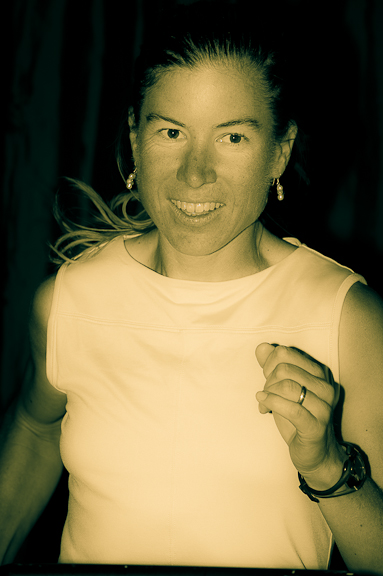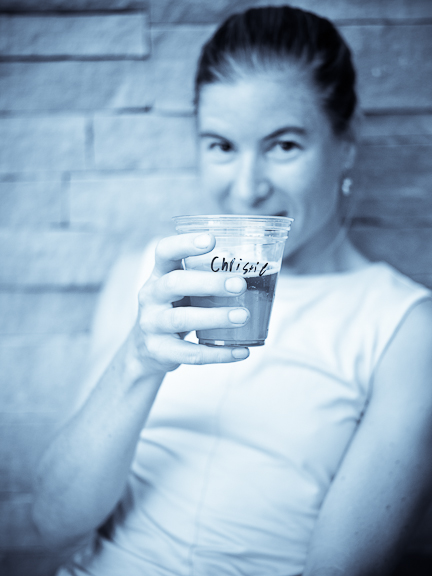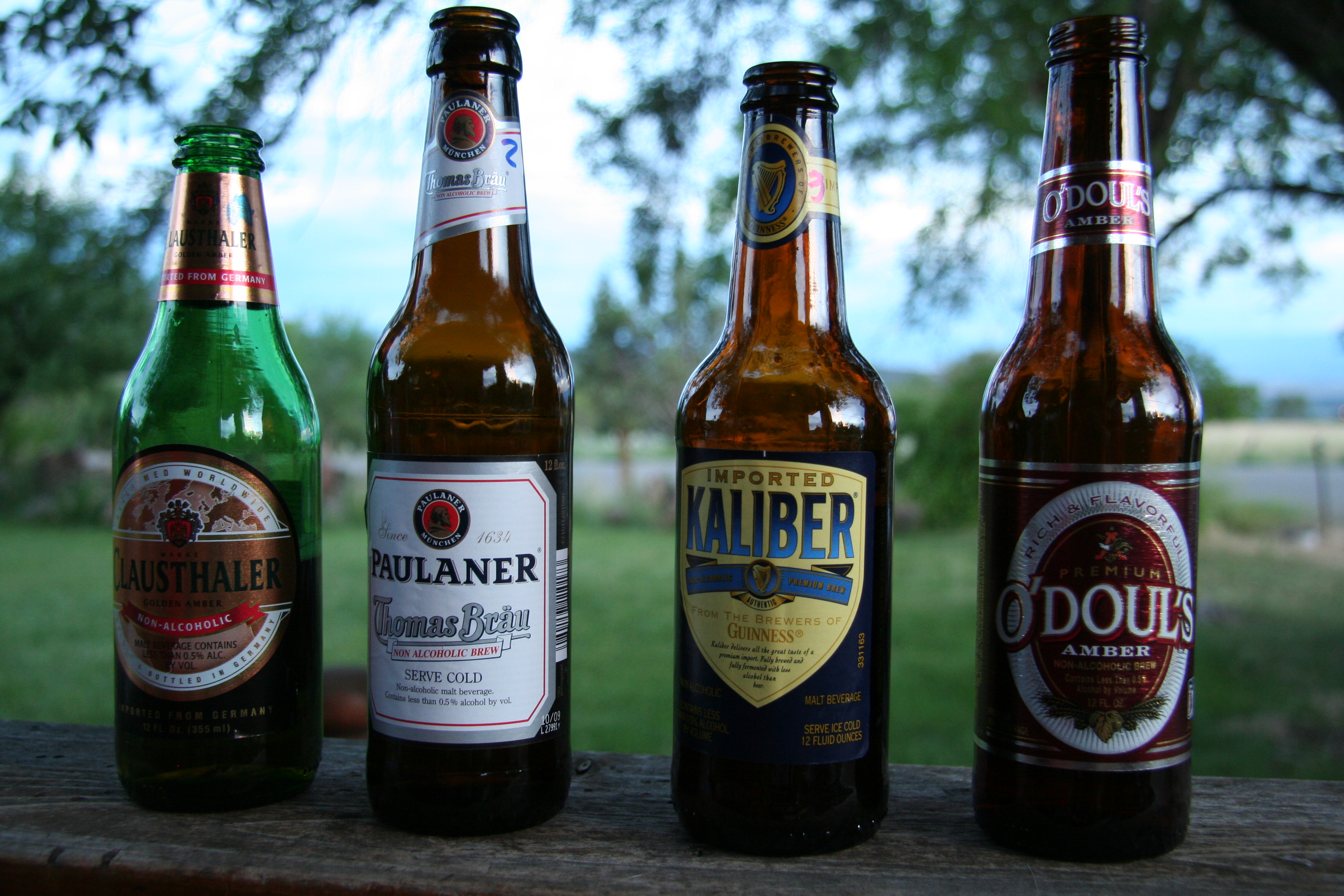The question came to me at 10-something AM in the morning. I had just hurdled a flaming fire pit, the finish line of a stupidly steep trail run in the desolate cliffs of Western Colorado. Now I was drinking a can of cold beer I’d pulled from the race refreshment cooler. And damn, if that beer didn’t taste good.
Some races give out t-shirts. Finishers of this event earned beer koozies emblazoned with the phrase “I survived the Summit and Plummet.”
I’d caught a ride to the event with a dear friend of mine, a former alcoholic. On the drive home, he casually remarked that he used to chug beer like that too, back in his drinking days. His comment was matter-of-fact, not judgmental, yet I found myself wondering if it was time for some self-reflection.
I don’t drink a lot, but I drink often. Did that make me an alcoholic? I went online and took a couple of self-quizzes. None of them labeled me an alcoholic, but one of them informed me, “You may already be beginning to push the limits between social drinking and alcoholism. Be sure to watch your drinking habits before they spin out of control.”
Despite this scolding, my drinking didn’t feel like addiction. For me, alcohol is not a need like my morning cup of caffeine, but, rather, an alluring want, like a bar of Swiss chocolate. Still, I wondered if my drinking habit was hurting my athletic performance. Was I killing my recovery by finishing my run with a microbrew? Would my running performance improve if I gave up the post-run Hefeweizen or Cabernet?
I swore I could go without alcohol, but the truth was, I rarely did. So I decided to hop on the wagon for a month and see what would happen. It had been so long since I’d gone more than a week without a drink that part of me wondered if I could really do it. I hoped that a month of abstaining would offer insights into my complicated relationship with alcohol and help me determine whether my drinking habit was hurting my running or the rest of my life.
I’d assumed that giving up alcohol would be challenging. For starters, I’m a home brewer, and I’m married to a winemaker. My home office looks out to our vineyard and hop garden. Alcohol is part of our normal dinner ritual, the sound of the cork or bottle cap popping a cue that it’s time to slow down and savor the evening and the meal. I wondered how it would feel to forsake that evening habit.
My first lesson came before I’d even started the experiment. I’d intended to complete the project in mid-summer, but I kept putting off the start date. First, it was my husband’s birthday, then wine club, a writer’s bash at my farm, and out of town guests coming in for the Colorado Mountain Winefest. The fact that I couldn’t find a convenient time to stop drinking made me realize just how much of my social life involves alcohol. Though I’d committed to the project in early summer, it was mid-September before I finally hit the wagon.
 I hypothesized that alcohol might influence three things: body composition, sleep and running performance. Before I began, I dropped by the Monfort Family Human Performance Lab at Mesa State College (now Colorado Mesa University). Bill Sands and Gig Leadbetter put me in lab’s Bodpod to measure my muscle mass and they also took a dozen skinfold and circumference measurements, including thighs, waist, hips and shoulders so that in the event that I gained or lost body fat we could ascertain where it came from or where it went.
I hypothesized that alcohol might influence three things: body composition, sleep and running performance. Before I began, I dropped by the Monfort Family Human Performance Lab at Mesa State College (now Colorado Mesa University). Bill Sands and Gig Leadbetter put me in lab’s Bodpod to measure my muscle mass and they also took a dozen skinfold and circumference measurements, including thighs, waist, hips and shoulders so that in the event that I gained or lost body fat we could ascertain where it came from or where it went.
My month without booze (MWOB) was both easier and more difficult than I’d anticipated. Out with my girlfriends, I ruefully eyed the local microbrews they drank while I sipped on club soda, but I was never tempted to cheat. Alcohol was off limits, and once I’d made that decision it was easy. I still enjoyed the company of imbibing friends and they were psyched to have a designated driver.
Still, ordering a cherry soda at the brewery felt akin to going to a French bakery and ordering a slice of Wonder Bread. It’s not that I needed the drink, it’s that without it, there seemed little sense in hanging out at a bar.
When an old teammate of mine from the University of Colorado cross-country team visited our farm one weekend, he waxed poetic about my husband’s Cabernet while I sat by and watched the two of them polish off a bottle of the wine and gleefully exchange stories that seemed somehow less funny without a wine halo. They remarked that I was giggling less than usual, and I have to admit, I felt a little left out. They weren’t exactly rip-roaring drunk, yet I found myself in a different headspace. They were dancing about in a happy cloud that I couldn’t quite penetrate. A drink in my hand, I realized, gives me license to loosen up, and it took some mental work to replicate this without the ritual.
I’d assumed that a little weight loss would be the one sure benefit of giving up alcohol, but when I returned to the lab after my month on the wagon, I’d actually gained ¾ of a pound. My body fat dropped an insignificant sliver, from 13.8% to 13.1%, and my abdominal fat caliper test was virtually unchanged. So much for the beer gut. My experience is not unique. Studies have found surprisingly little correlation between alcohol intake and body weight. In fact, one study even hypothesized that the reason alcohol doesn’t increase body weight is that drinkers are more physically active than teetotalers.
 I kept track of my sleep patterns with a Fitbit—a nifty accelerometer that clipped on to a wristband to track movement during sleep. As a night owl, I’m usually groggy and sluggish in the early morning. Before my MWOB, I wondered if alcohol was somehow disrupting my sleep—a known effect—and adding to my morning blahs. Instead, on many nights during my MWOB, I found myself lying in bed restless, unable to quiet my overactive mind, filled with thoughts of deadlines and phone conferences and other tasks that awaited my attention. At the risk of sounding like an addict, I’ll admit that I missed the subtle way that alcohol took the edge off my internal mind chatter and helped me relax.
I kept track of my sleep patterns with a Fitbit—a nifty accelerometer that clipped on to a wristband to track movement during sleep. As a night owl, I’m usually groggy and sluggish in the early morning. Before my MWOB, I wondered if alcohol was somehow disrupting my sleep—a known effect—and adding to my morning blahs. Instead, on many nights during my MWOB, I found myself lying in bed restless, unable to quiet my overactive mind, filled with thoughts of deadlines and phone conferences and other tasks that awaited my attention. At the risk of sounding like an addict, I’ll admit that I missed the subtle way that alcohol took the edge off my internal mind chatter and helped me relax.
The Fitbit data confirmed that I actually took longer to fall asleep during my MWOB and I didn’t get any more sleep or toss and turn any less than usual. Working from home on my own schedule, I have the luxury of waking without an alarm, and I was disappointed to find that I didn’t wake any earlier without alcohol. When I dragged myself out of bed, I was no more chipper or alert than when I’d been drinking.
As for running performance, it hardly changed. During my MWOB I kept a detailed training diary and tried to replicate my training from the previous month. Once again, I was startled to find no detectable difference. I felt about the same as I had when I’d been drinking, and my times on my standard training runs were nearly identical. My favorite 9-mile test run took me the same exact time as it had the previous month, and my other run times were virtually unchanged. If I felt any better or more recovered on my runs, the difference was too small to notice.
While I was disappointed to reap no obvious benefits from giving up alcohol, the project wasn’t a total loss. At the very least, I proved to myself that my drinking wasn’t causing me discernible harm. It also gave me an opportunity to reflect on how and why I drink. In my 20’s, I drank infrequently, but when I did it was often to excess. I long ago abandoned those binge habits and now drink often but with restraint. While I occasionally enjoy a slight buzz, I loathe being drunk and carefully avoid the three drink threshold, beyond which I know I’ll feel regret the next day.
 It’s been 16 months since I jumped off the wagon, and I find my drinking habits have shifted ever so slightly. My month off reminded me to slow down and fully experience what I’m sipping. I still drink more nights than I don’t, but I find myself less apt to pop a second bottle of IPA as I spend more time relishing the first. Its absence made me even fonder still of my husband’s hand-crafted vino and I revel in every sip.
It’s been 16 months since I jumped off the wagon, and I find my drinking habits have shifted ever so slightly. My month off reminded me to slow down and fully experience what I’m sipping. I still drink more nights than I don’t, but I find myself less apt to pop a second bottle of IPA as I spend more time relishing the first. Its absence made me even fonder still of my husband’s hand-crafted vino and I revel in every sip.
The truth is, I don’t drink because I think it’s healthy. I drink to savor and enjoy life. My experiment in abstinence cemented my philosophy of drinking: Enjoy a little alcohol. Not too much. Mostly (local) beer and wine
See also:
Part 1 of this series, What beer and running taught me about science.
Beer Run! (My Runner’s World report on our beer and running study.)
***
Photos: Non-alcoholic beer taste test by Christie Aschwanden.
Photos of Christie by JT Thomas.
